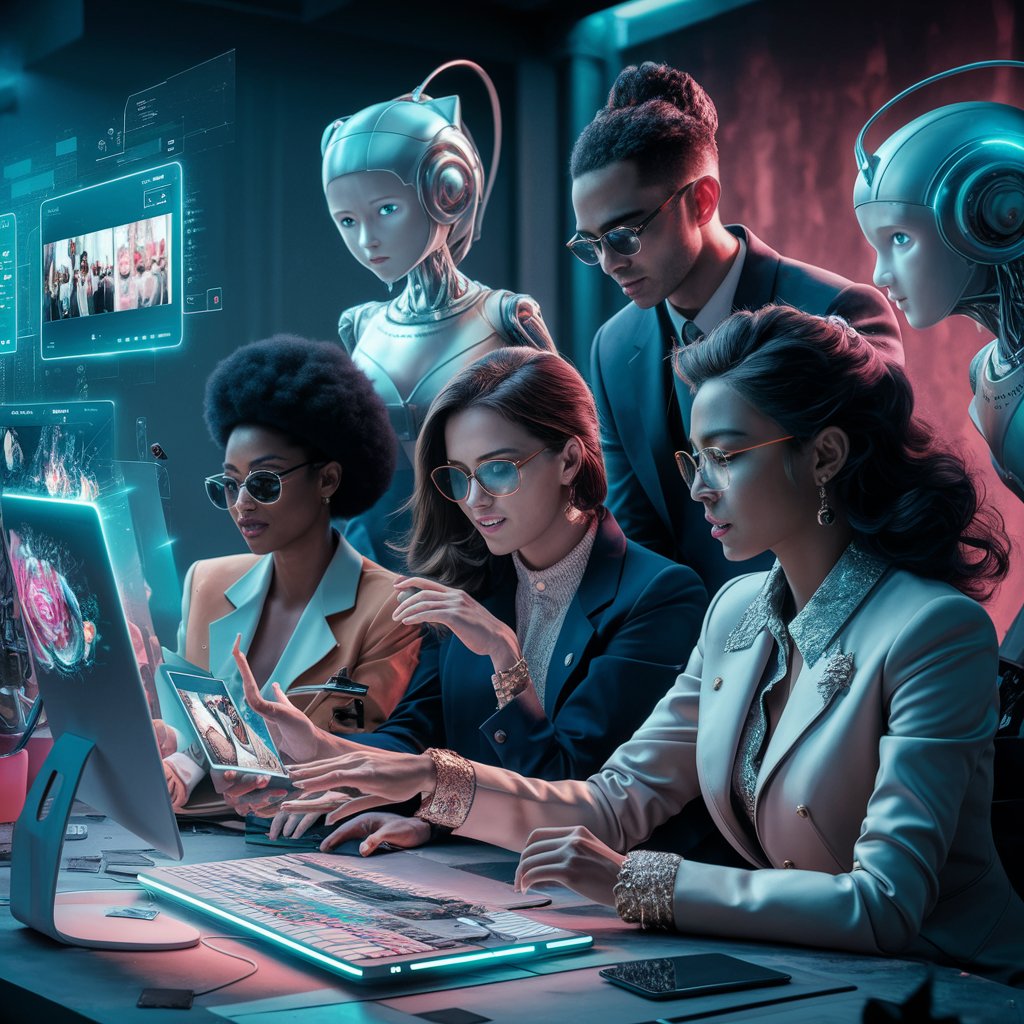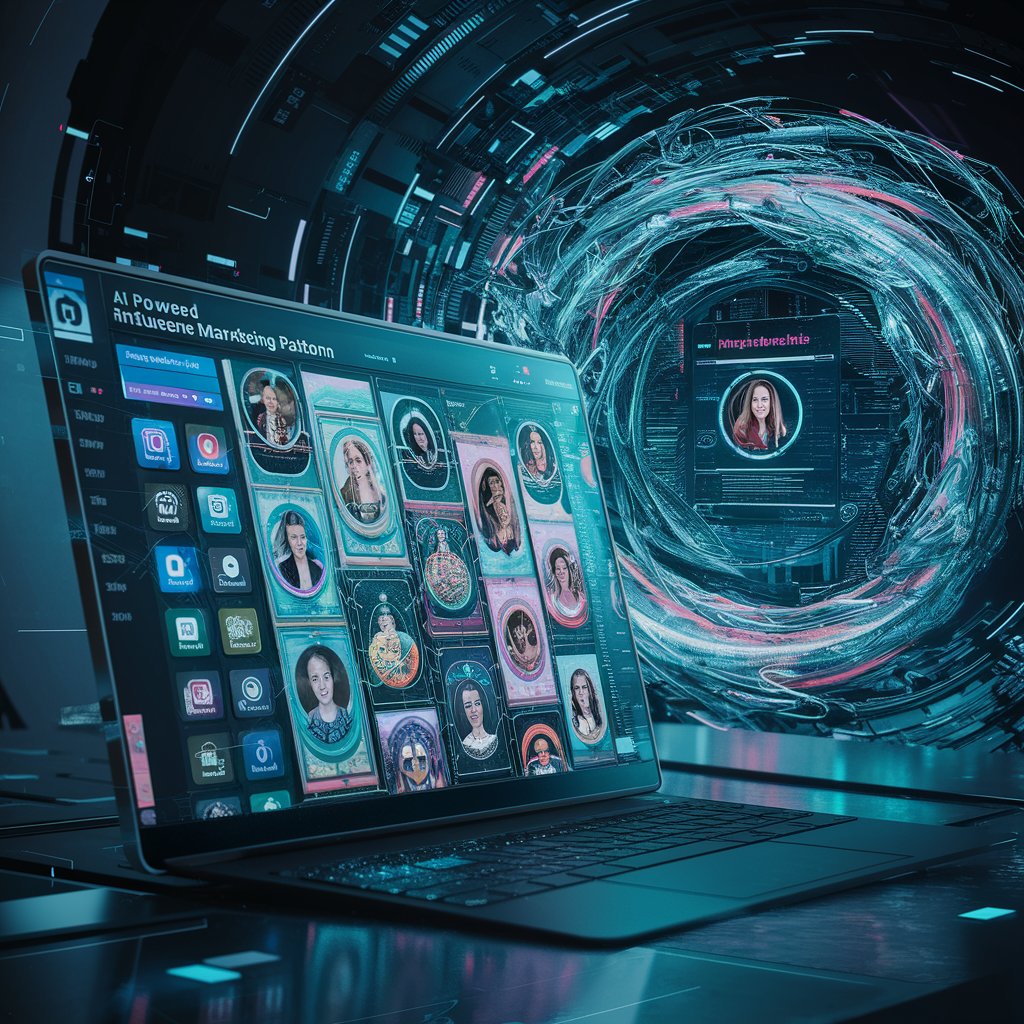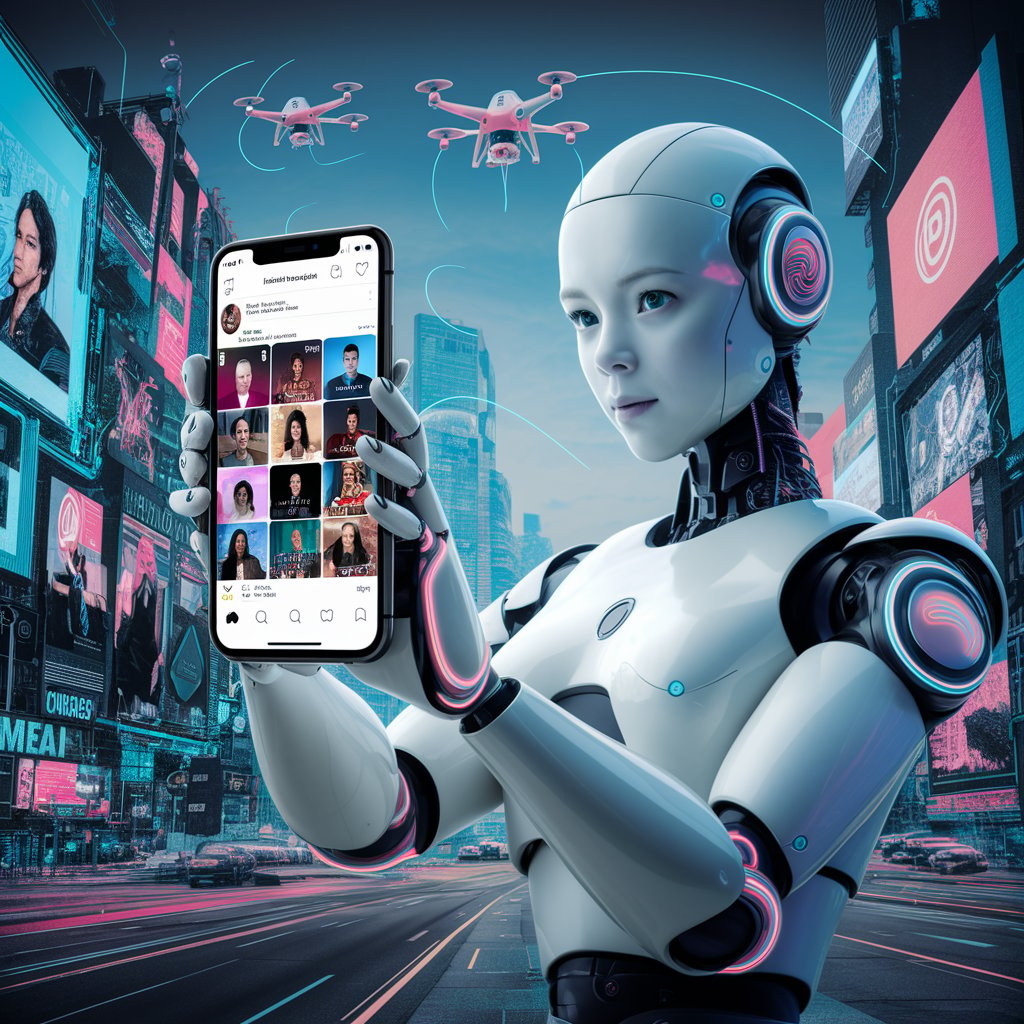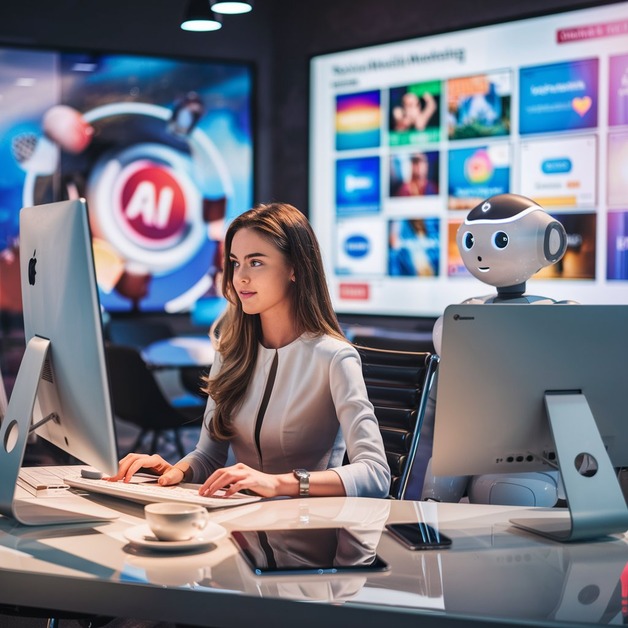Introduction
Influencer marketing has been a potent tactic for companies trying to establish a genuine and interesting connection with their target markets in recent years.. With the rise of social media platforms, influencers have become key players in digital marketing, leveraging their large followings to promote products and services.However, overseeing influencer efforts can be extremely difficult due to their vast scope and complexity.. This is where artificial intelligence (AI) steps in, revolutionizing the influencer marketing landscape by providing more efficient and data-driven solutions. In this article, we explore how AI is transforming influencer marketing, the benefits it offers, and real-world examples of its application.

Understanding AI in Influencer Marketing
AI in influencer marketing involves the use of advanced algorithms and machine learning techniques to analyze data, automate processes, and optimize strategies. These AI-driven tools can help brands identify the right influencers, track campaign performance, and gain insights into audience demographics and preferences. Marketers can increase efficiency, cut expenses, and improve outcomes by utilizing AI.
Key Benefits of AI in Influencer Marketing
- Efficient Influencer Identification
Finding the right influencers for a brand’s campaign can be a daunting task, given the vast number of potential candidates across various social media platforms.By sifting through massive databases to find influencers that share the same values as the brand, target market, and campaign objectives, artificial intelligence streamlines this process.For example, AI tools can assess an influencer’s engagement rates, audience demographics, and content style, ensuring a better match for the brand. Time is saved, and there’s a greater chance that the campaign will succeed.
- Enhanced Audience Analysis
Understanding the audience is crucial for any marketing campaign, and influencer marketing is no exception.AI-powered technologies are able to examine an influencer’s fan base to offer comprehensive information on their characteristics, passions, and online activities. This information allows brands to select influencers whose audiences closely match their target market, ensuring that the campaign reaches the right people. For instance, a beauty brand targeting millennials might use AI to find influencers with a strong following among young, beauty-conscious consumers.
- Performance Tracking and ROI Measurement
It can be difficult to gauge the success of influencer marketing initiatives . Real-time statistics and performance tracking are provided by AI tools. Brands can monitor key metrics such as engagement rates, reach, impressions, and conversions, allowing them to gauge the success of their campaigns accurately. Additionally, AI can assist in calculating the return on investment (ROI) by analyzing the cost of the campaign relative to the sales and brand awareness generated.With this data-driven strategy, marketers may more efficiently deploy resources and optimize their campaigns.
- Content Optimization
AI in Influencer Marketing is also useful for optimizing and creating content.Artificial intelligence (AI) technologies can recommend content forms, subjects, and posting schedules that are expected to do well by examining previous campaigns and audience preferences For example, an AI tool might identify that video content generates higher engagement than static images for a particular influencer’s audience. Brands can then work with the influencer to create more video content, maximizing the impact of their campaigns.
- Fraud Detection
Fake engagement and followers are common in influencer marketing, which presents a dilemma. AI can help detect fraudulent activity by analyzing patterns and identifying inconsistencies in an influencer’s metrics. For instance, an AI in influencer marketing tool might flag an influencer with a high number of followers but low engagement rates, indicating potential fake followers. By using AI for fraud detection, brands can ensure they are investing in genuine influencers who can deliver real value.

Real-World Applications and Case Studies
L’Oreal: Partnering with AI for Influencer Campaigns
Leading multinational manufacturer of cosmetics, L’Oreal, has improved its influencer marketing with AI. . By using AI-powered tools, L’Oreal has been able to identify the most relevant influencers for its campaigns, based on factors such as audience demographics, engagement rates, and content alignment. In one campaign, L’Oreal partnered with influencers who had a strong following among Gen Z and millennials, resulting in a significant increase in brand awareness and product sales.
Unilever: Utilizing AI for Influencer Selection
One of the biggest consumer products firms in the world, Unilever, has also included AI in influencer marketing plan. Unilever uses AI tools to analyze data from social media platforms, identifying influencers who resonate with their target audiences. In a campaign for one of its personal care brands, Unilever used AI to find influencers who had a strong presence in the beauty and skincare community. The campaign achieved high engagement rates and positive brand sentiment, demonstrating the effectiveness of AI-driven influencer selection.
Sephora: Enhancing Customer Experience with AI
Sephora, a leading beauty retailer, has integrated AI into its influencer marketing and customer engagement strategies. Sephora use artificial intelligence (AI) to customize content and product recommendations for its followers by examining customer data and social media interactions. This approach not only improves the customer experience but also helps Sephora identify influencers who can authentically promote its products. In a recent campaign, Sephora collaborated with beauty influencers who had a strong track record of engaging with their audiences, resulting in increased brand loyalty and sales.

The Future of AI in Influencer Marketing
It is anticipated that AI technology will have an even greater impact on influencer marketing as it develops.Future advancements may include more sophisticated AI algorithms that can better understand the nuances of human behavior and preferences. For example, AI could analyze not only quantitative data like engagement rates but also qualitative data such as sentiment and emotional tone, providing a more holistic view of an influencer’s impact.
Moreover, AI’s role in influencer marketing is likely to expand beyond campaign management to include more strategic elements, such as trend forecasting and content ideation. By predicting emerging trends and suggesting innovative content ideas, AI can help brands stay ahead of the curve and maintain a competitive edge in the market.
In terms of ethical considerations, the use of AI in influencer marketing also raises important questions about transparency, privacy, and the authenticity of influencer endorsements. Brands and marketers will need to navigate these issues carefully, ensuring that they use AI responsibly and maintain trust with their audiences.
Conclusion
AI is revolutionizing the influencer marketing landscape, offering brands more efficient, data-driven solutions for identifying influencers, analyzing audiences, tracking performance, and optimizing content. By leveraging AI, businesses can enhance the effectiveness of their influencer marketing campaigns, achieve better ROI, and build stronger connections with their target audiences. As technology continues to advance, the potential for AI in influencer marketing will only grow, making it an essential tool for marketers looking to thrive in the digital age. Embracing AI in influencer marketing is not just a trend but a strategic move that can unlock new opportunities and drive long-term success.



